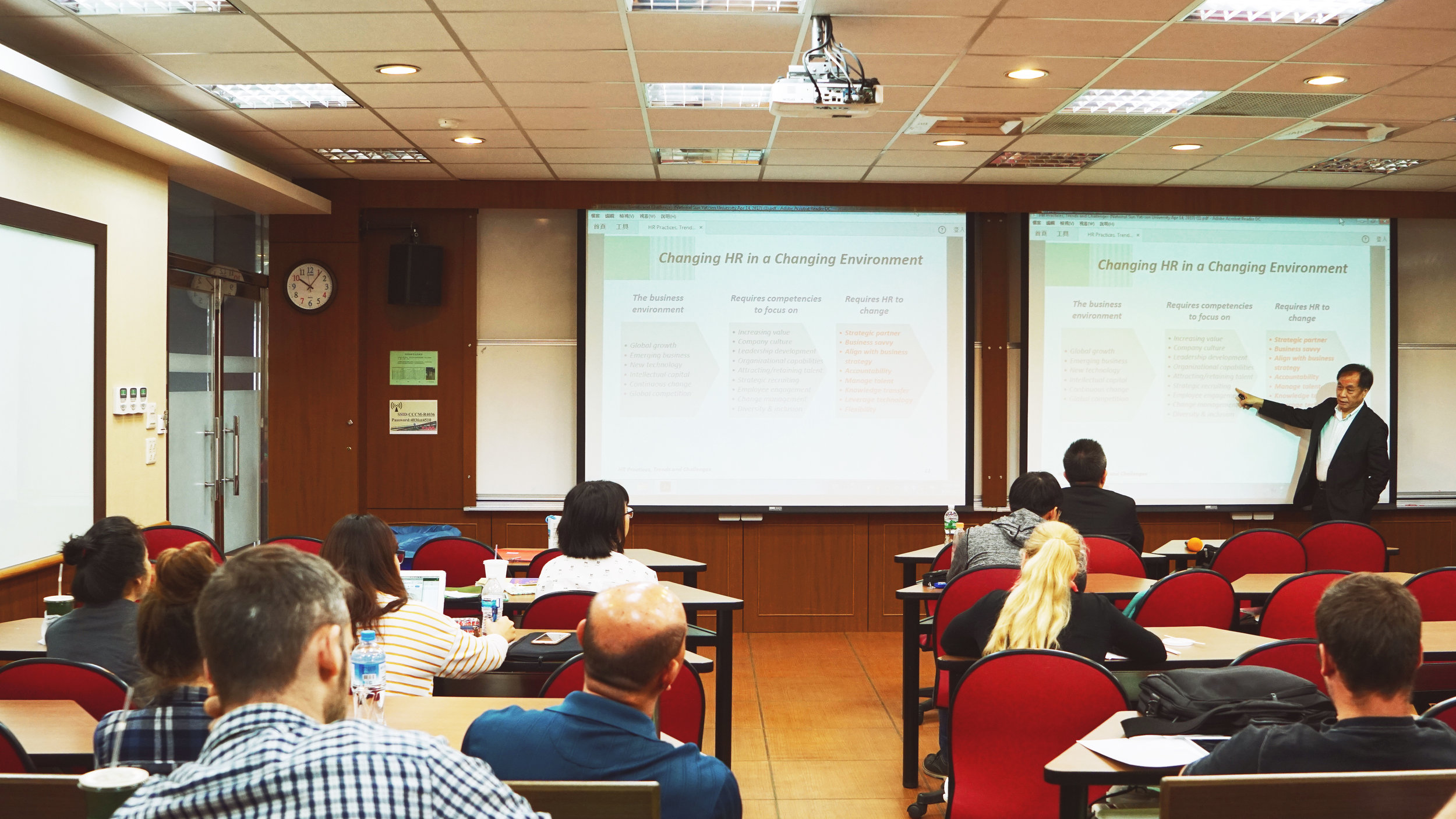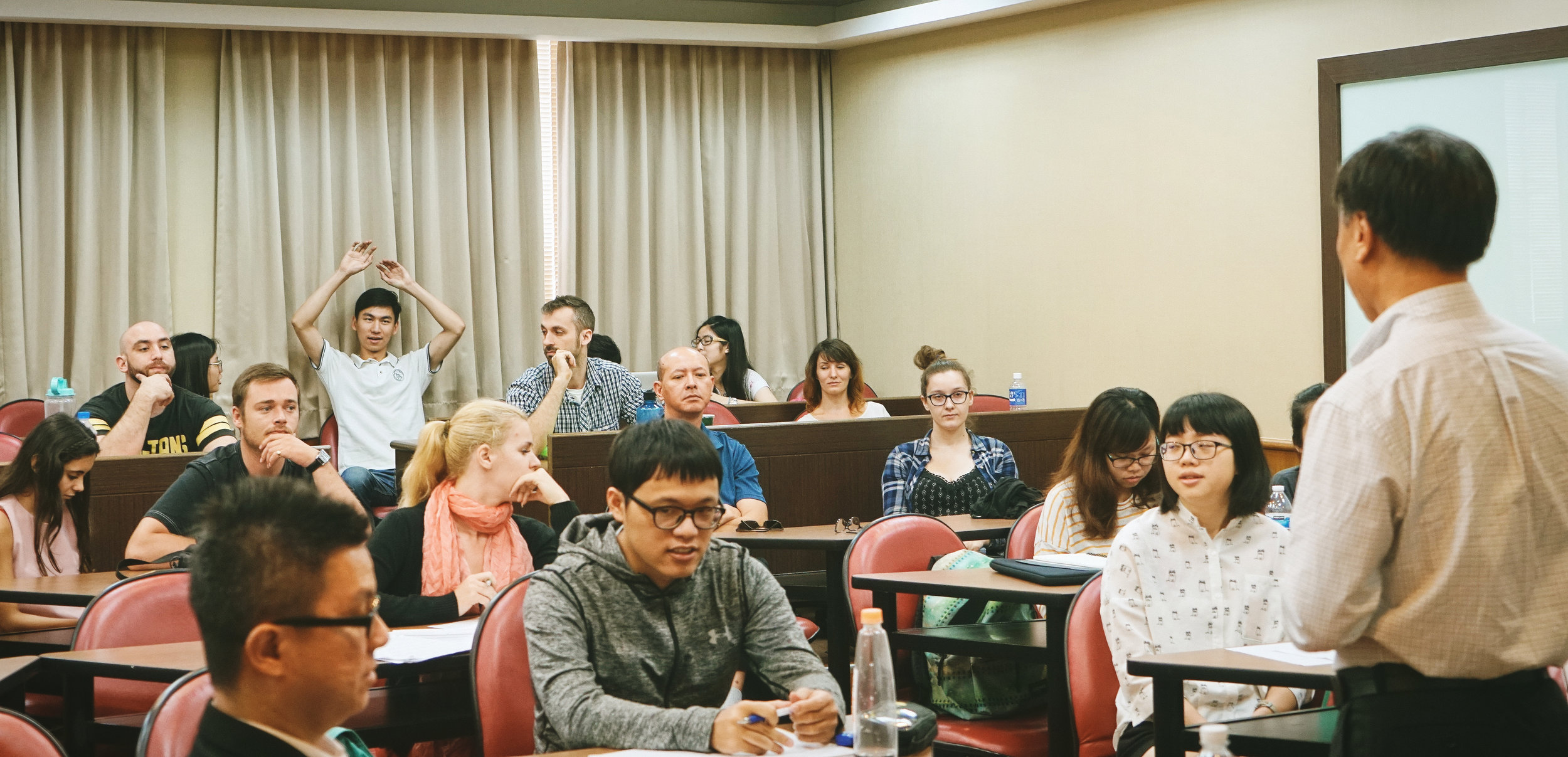Rick Liu 劉文章: HR Practice, Trends and Challenges
/人力資源管理的實務、潮流與未來挑戰
中美和石油化學股份有限公司於1976年由英國BP Global與台灣中油公司共同投資成立,目前資本額到達新台幣70億餘元,是台灣PTA製造中的佼佼者。
GHRM MBA本次邀請到的講者---Rick劉文章,在中美和工作32年(現已退休),身為前人資長,Rick用不同的高度看待台灣人力資源管裡的發展,透過統計資料佐證,與在場的GHRM學生(未來人資主管們!)討論現代人力資源管理所面臨的挑戰。
「Alphabet是目前全球人力資源管理的領頭羊。」Rick開宗明義說。Alphabet,也就是大家熟知的Google透過大數據分析公司中各領域中所需的人才,並從資料庫中找尋最合適的人選,適性配對後將能使人發揮最大的才能。目前世界上有許多公司也將大數據使用於人才分析上,希望能夠效法Alphabet,使公司與人力兩端效益極大化。
然而,HR在全球持續受到重視,但台灣在這方面卻是相對落後。「許多公司都認為該職位的主管一定知道部門在尋找怎樣的人才,所以直接忽略人力資源以及人力資源作為管理一環的重要性。」Rick表示,台灣過去代工與製造產業迅速發展的情況下,多數人力用於高技術重複性的職位,這樣的產業結構導致人力資源迅速流動成為常態,而公司與企業也疏於了解如何提升人才、留住人才。
往樂觀的一面看,台灣面臨的產業轉型或許是人力資源管理的契機,新創公司或許沒有能力創設如大企業一般的HR部門,但善待人才的新穎觀念深植在大量接收資訊的年輕世代心中,傳統的大企業也在台灣人力資本匱乏的情況下開始思考如何讓其員工提升自身能力、發展留任哲學,同時也讓公司對新人才擁有更好的吸引力,形成人力資源運用的綠色循環。
未來,人力資源的運用將考驗企業的智慧,用環保的角度來看,我們希望一切都能回收再利用,人力資源又何嘗不是呢?
CAPCO Co.,Ltd was established in 1976 as a joint venture of BP Global and Taiwan’s CPC Corporation. At present, CAPCO's capital reaches NT$7.072 billion, 61% of the stocks held by BP (process technology developer) while the rest of 39% held by Taiwan CPC.
As part of our independent studies course in the second semester in GHRM MBA, there are speeches provided by professionals in the human resource field. The first presentation was given by Rick Liu, the retired HR director from CAPCO, advisor for Chinese Human Resource Management Association (CHRMA), and a consultant for HR Academy Business Group, 104 Corporation.
In the presentation, he talked a lot about the present situation around the world with regards to human resources. For many countries, the implementation of big data is becoming increasingly important. He talked specifically about Google and their HR practices. Google is a leader in the HR field. The company uses data-based people management. Currently, it has the only data-driven HR. All people decisions at Google are based on what they can find from data and analytics. He talked about some things such as what Google thinks of employees taking breaks, or the food they eat when they go to the cafeteria, and how this can be reflected in better HR practices.
The good and bad news for future HR professionals is that the importance of the field is growing. It is bad because many companies do not place a huge emphasis on the power of human resources, however, Mr. Liu did state that this is slowly changing. The fast-growing economy and the business structure in the 70s has its influences on the current HR management problems in Taiwan, but with the heavy information flow, the younger generation generally has a better idea on how to keep the talents. The lack of human capital also leads corporations to collect ideas on keeping talents and developing the human resource philosophy, which can make the working environment more attractive to the young, talented people.
To summarize, Mr. Liu felt optimistic about the future of human resources. He understands the challenges that HR professionals face when they graduate university and hopes that business culture might change in Taiwan and around the world. At the same time, he remains hopeful to the future HR management. It was an honor to have him here at GHRM MBA sharing his ideas with the potential future HR managers.





